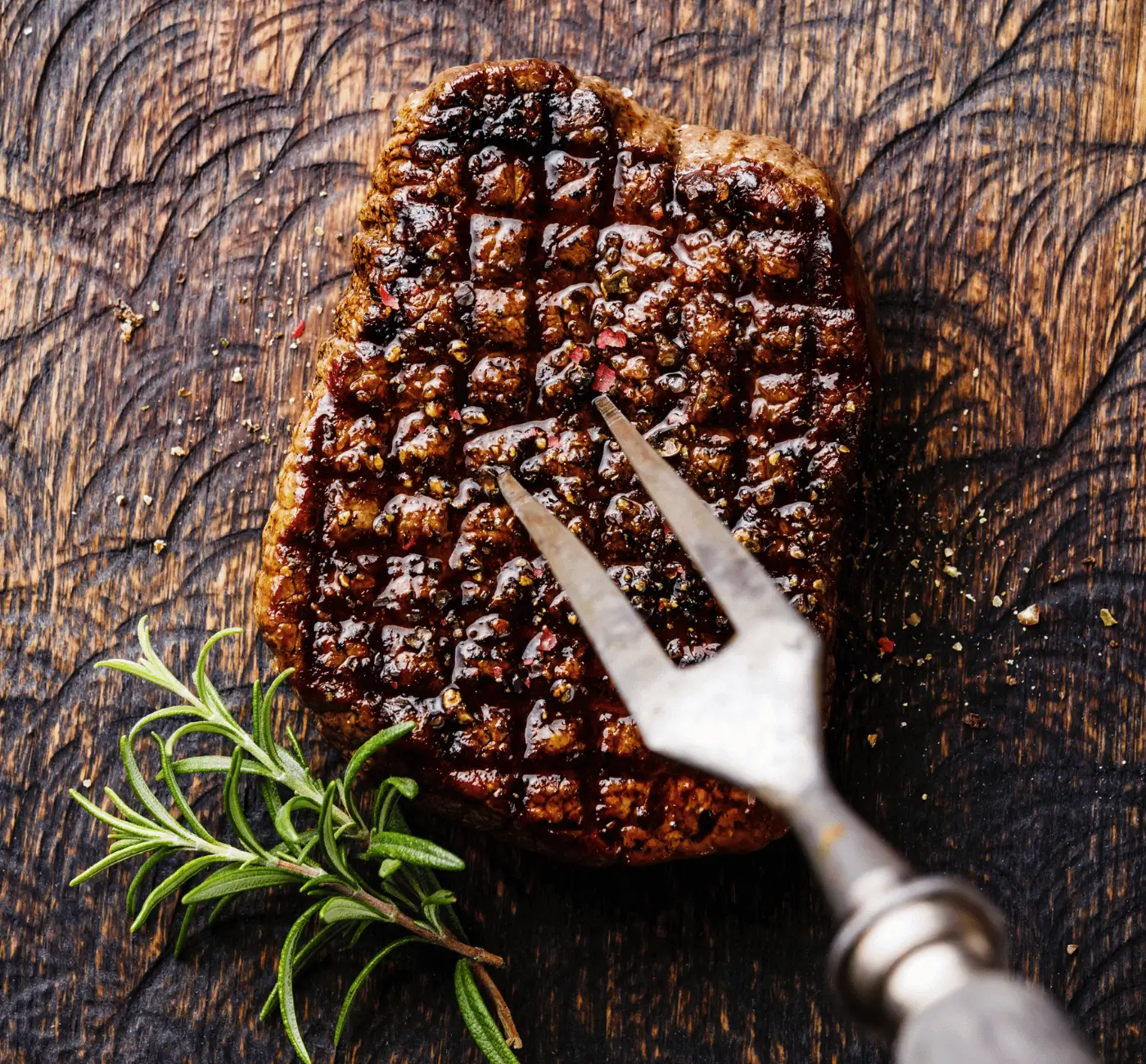
For over 70 years, nutritional scientists have been debating the question, is steak healthy?
Some older observational studies that include processed meats have correlated eating meat with certain cancers and heart disease. While more recent, higher-quality randomized control trials and review studies reveal that fresh steak and its saturated animal fat are not dangerous.
In 2021 the first high-quality studies of the all-meat carnivore diet have been released, showing that eating primarily steak while forgoing plant foods is remarkably healthy.
In this article, we’ll explore the latest nutritional evidence to offer a comprehensive answer the question, is steak healthy?
Numerous recent studies are setting the record straight on the health benefits and risks of eating steak. Here’s a rundown:
Original guidelines for limiting steak due to saturated fat content date back to observational studies from the 1950s. Observational studies cannot determine causation, only correlation.
Numerous modern, high-quality studies that include over 1 million participants and are published in the most trusted medical journals find that for the average person, saturated fat–the kind that steak has been demonized for–is not significantly associated with heart disease, cancer, stroke, diabetes, and death from heart attack [1] [2] [3] [4] [5].
There is likely a significant difference in health outcomes between eating fresh steak and processed meat.
A major 2020 study co-authored by researchers from the world’s most renowned medical schools and published in the prestigious Journal of the American College of Cardiology found, “Although intake of processed meat has been associated with increased risk of CHD, intake of unprocessed red meat is not, which indicates that the saturated fat content of meat is unlikely to be responsible for this association.” [6]
Saturated fat consumed as part of whole animal foods, including fresh steak, is healthy for most people [7] [8] [9] [10] [11] [12] [13].
In fact, studies show that getting rid of fatty meat like ribeye steak, and replacing it with lean protein like chicken, may increase the risk of certain cancers [17].
Researchers have found that “Whole-fat dairy, unprocessed meat, and dark chocolate are SFA-rich foods with a complex matrix (of nutrients) that are not associated with increased risk of CVD. The totality of available evidence does not support further limiting the intake of such foods” [14].
Authors of a wide-ranging 2019 study aimed at identifying possible benefits of reducing meat concluded, “The certainty of evidence for these risk reductions was low to very low.” [15]
Similarly, a 2011 analysis of 25 studies found insufficient evidence to support an association between steak and colon cancer–the most common cancer attributed to eating steak [16].
Fresh steak is among the most nutrient-dense foods on earth. It provides an abundance of bioavailable and meat-specific nutrients, is highly satiating, and is associated with numerous markers of health, fertility, and longevity [17][18].
We’ll take a closer look at these meat-specific nutrients shortly.
Total meat consumption correlates with greater life expectancy independent of total caloric intake, economic status, urban advantages, and obesity [16].
The longevity associated with meat is likely due to specific health benefits. Studies comparing steak-heavy low-carb, high-fat diets to vegetarian diets reveal dramatically better outcomes for the high-steak diets for markers of cardiovascular health, weight loss, and blood sugar regulation [19][20][21].
It is worth noting that the meat in these diets was low fat. Based on evidence that substituting lean meat for animal fat is likely worse for your heart, we believe that a diet with fattier meat would result in greater health benefits.
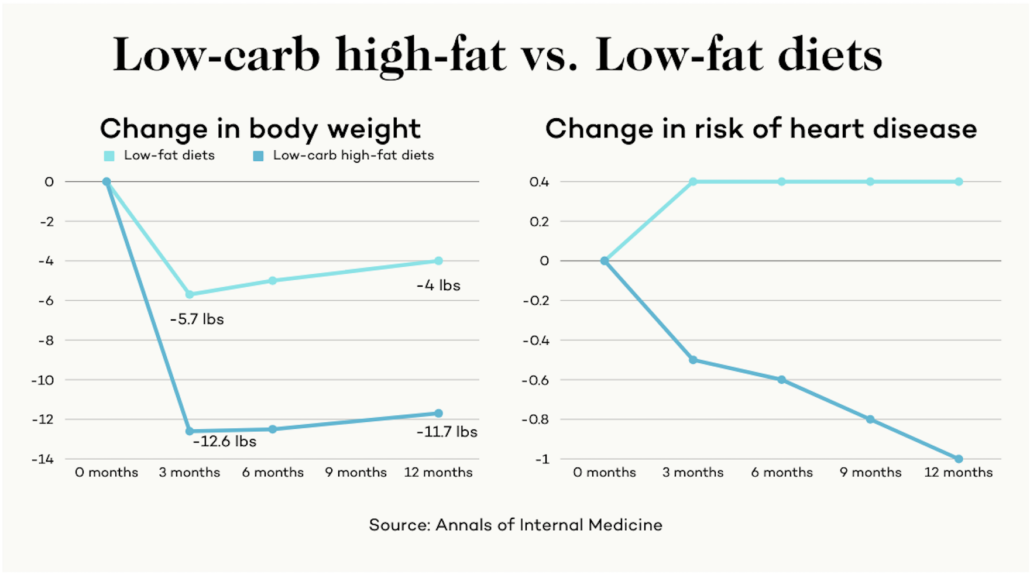
The physiology of modern humans is nearly identical to that of our caveman ancestors. For nearly 2 million years our ancestors evolved and physically adapted to a diet of mostly fatty red steak-like meat. This suggests that our bodies are evoled to thrive on steak [22].
No wonder steak provides an almost perfect balance of highly bioavailable macro and micro nutrients.
Meat can be farmed with “regenerative agricultural practices” or “carbon farming” This can sequester carbon and improve soil health [23].
At current rates, industrial agriculture of plant foods will destroy all arable topsoil in 60 years [24]

One of the most eye-opening studies suggesting that steak is healthy came out of Harvard University in 2021.
Researchers Dr. Belinda Lennerz and Dr. David Ludwig, tracked the effects of a carnivore diet for 2,029 people over six months [25].
They concluded, “Contrary to common expectations, adults consuming a carnivore diet experienced few adverse effects and instead reported health benefits and high satisfaction.”
The overwhelmingly positive results included:
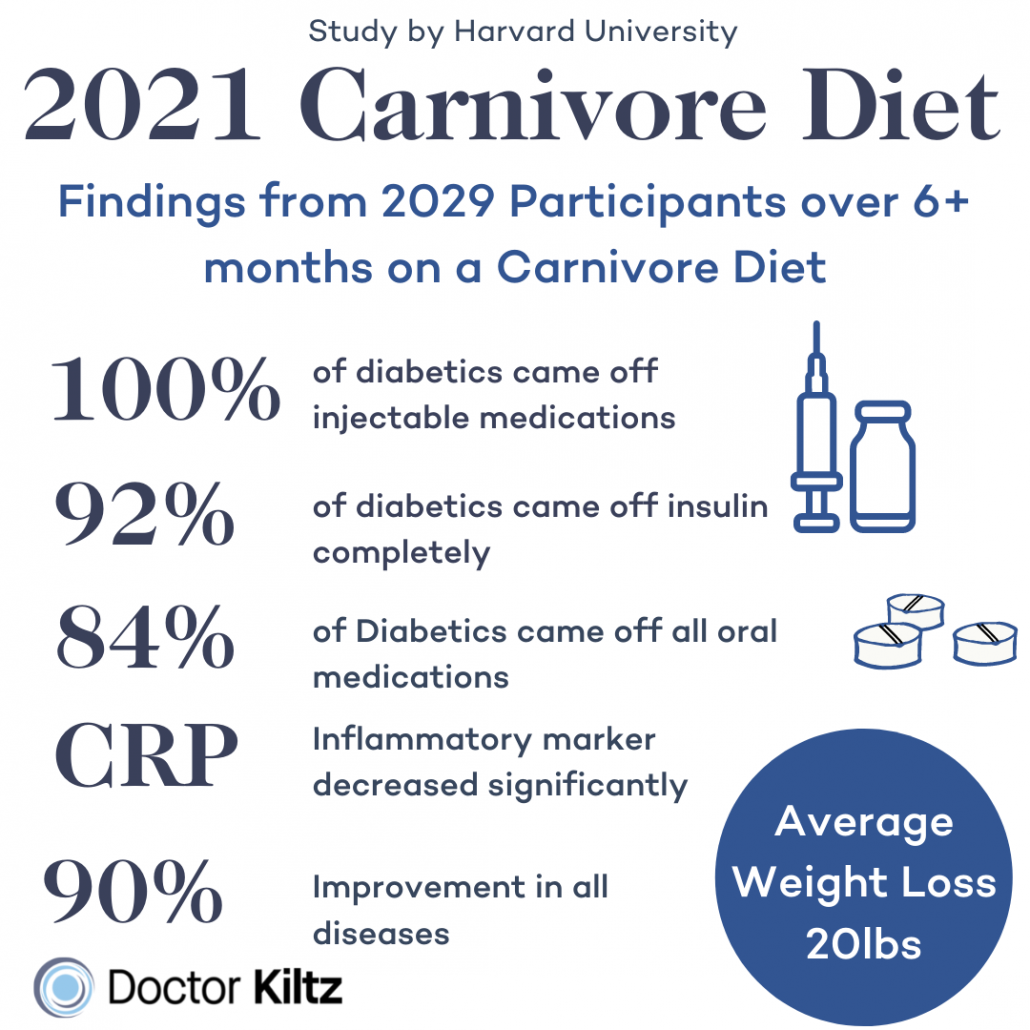
It is worth noting that the results were self-reported and therefore less reliable than randomized control trials. However, they align with the tens of thousands of anecdotal reports from carnivore dieters extolling how an all meat–mostly steak–diet boosts energy and mental clarity, improves bowel function and clears up gastrointestinal issues, promotes clearer skin, and reverses diabetic and pre-diabetic conditions.
Ruminant animals like cows can eat, digest, and ferment plant foods into fatty acids that become part of their meat.
Humans on the other hand, cannot digest many parts of plants, absorb their carbs, and get exposed to various plant toxins and antinutrients.
When you eat steak instead of plant foods you reduce your exposure to added sugars, processed grains, plant defense mechanisms, and industrial vegetable oils. This is also why steak on keto is such a great fit.
All of these compounds can contribute to chronic inflammation, heart disease, cancer, diabetes, and numerous other negative health outcomes [26] [27] [28] [29].
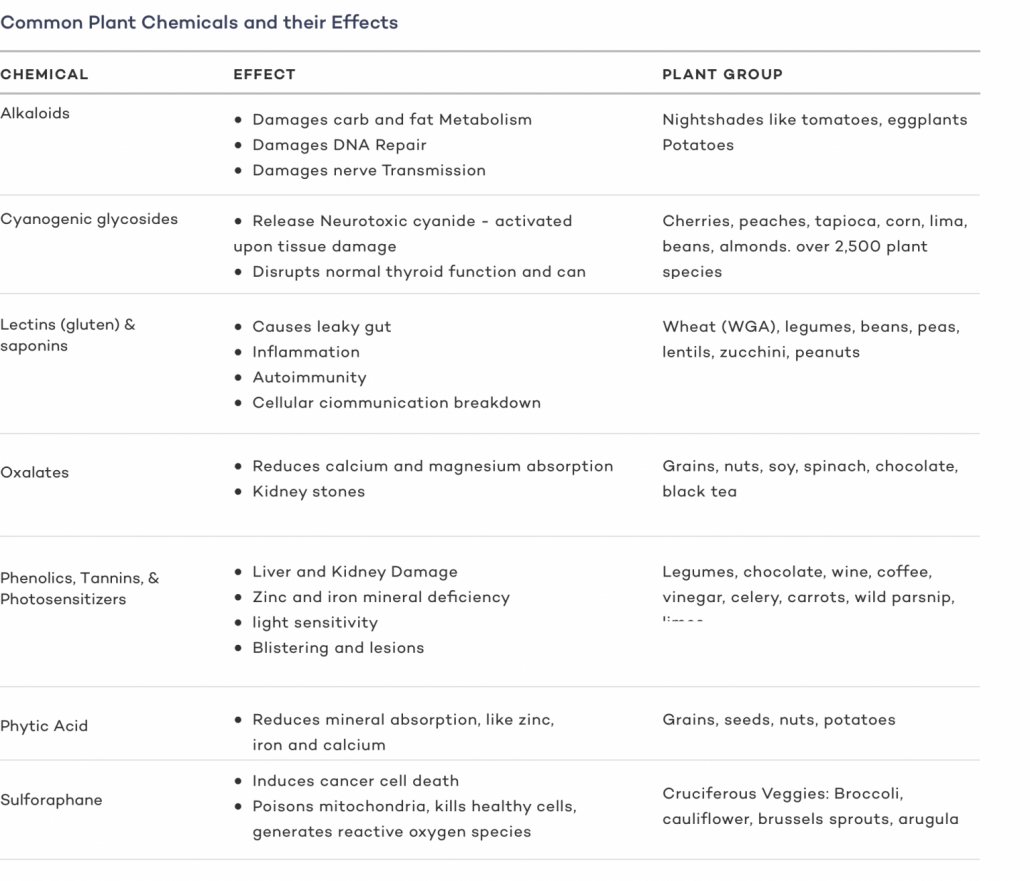
Steak is objectively nutritious when considering its macro and micronutrient profile. Most people think of the health benefits of steak as exclusively having to do with protein. It is true that steak provides all the essential amino acids that humans need to get from food–making it a “complete” protein. Your body uses this protein to grow and maintain muscle, body tissue [30][31].
Beyond protein, steak provides various other beneficial micronutrients and compounds, many of which are found only in meat.
The nutrients in steak contribute to and support numerous health benefits, including:
Let’s take a look at some key nutrients in steak and how they can support your health.
Steak, especially pasture-raised, provides high levels of a beneficial type of fat called conjugated linoleic acid (CLA) [32].
This is one of those nutrients you can only get from food–your body can’t synthesize it on its own.
The health benefits of CLA include [33][34][35[36][37]:
One of the most important researchers working on the question, is steak (and meat in general) healthy? was Dr. Weston A. Price (1870-1948).
Dr. Price traveled to remote parts of the world in a quest to discover the secret to excellent dental health (he was a dentist) and the absence of disease among many traditional cultures.
Dr. Price found that what these cultures had in common was the prioritizing of meat, especially fatty cuts and organ meats.
Compared to a modern Western diet, traditional meat-centered diets provided:

It’s worth noting that Dr. Price recognized the prizing of fatty meats–the best cuts of steak are all the fattiest.
Recent research shows that though total saturated fat intake is not related to incidences of heart disease, substituting animal protein for animal fat may increase your risk of heart disease 15.
This is another example of how mainstream diet recommendations may be dangerously wrong. Swapping out fatty steak for lean meats is the wrong approach.
When we look at health and nutrional data from the last 100 years, we can see a strong correlation between reducing animal fats with increases in obesity and heart disease.
The bottom line is that steak is highly nutritious and loaded with essential proteins, fats, vitamins, and minerals that support nearly every bodily function.
To bring the nutritional healthiness of steak home, let’s look at the nutrients in a few of healthiest cuts of meat.
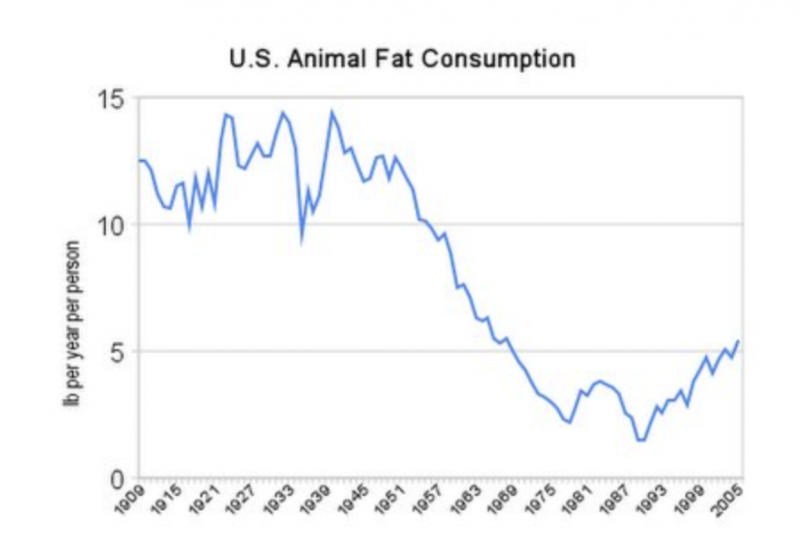

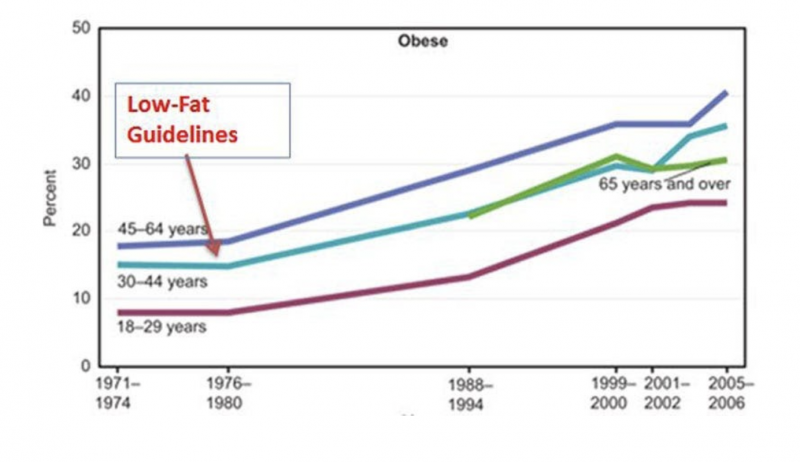
Source: National Center for Health Statistics (US). Health, United States, 2008: With Special Feature on the Health of Young Adults. 2009 Mar. Chartbook.


Ribeye steak is succulent, delicious, and abundant in vital nutrients like B vitamins, zinc, and selenium.
Dr. Kiltz makes ribeye the centerpiece of his three pillars of health and wellness.
Ribeye is so abundant in nearly every essential nutrient that you can thrive on a diet of ribeye steak, salt, and water alone. This approach is known as the lion diet
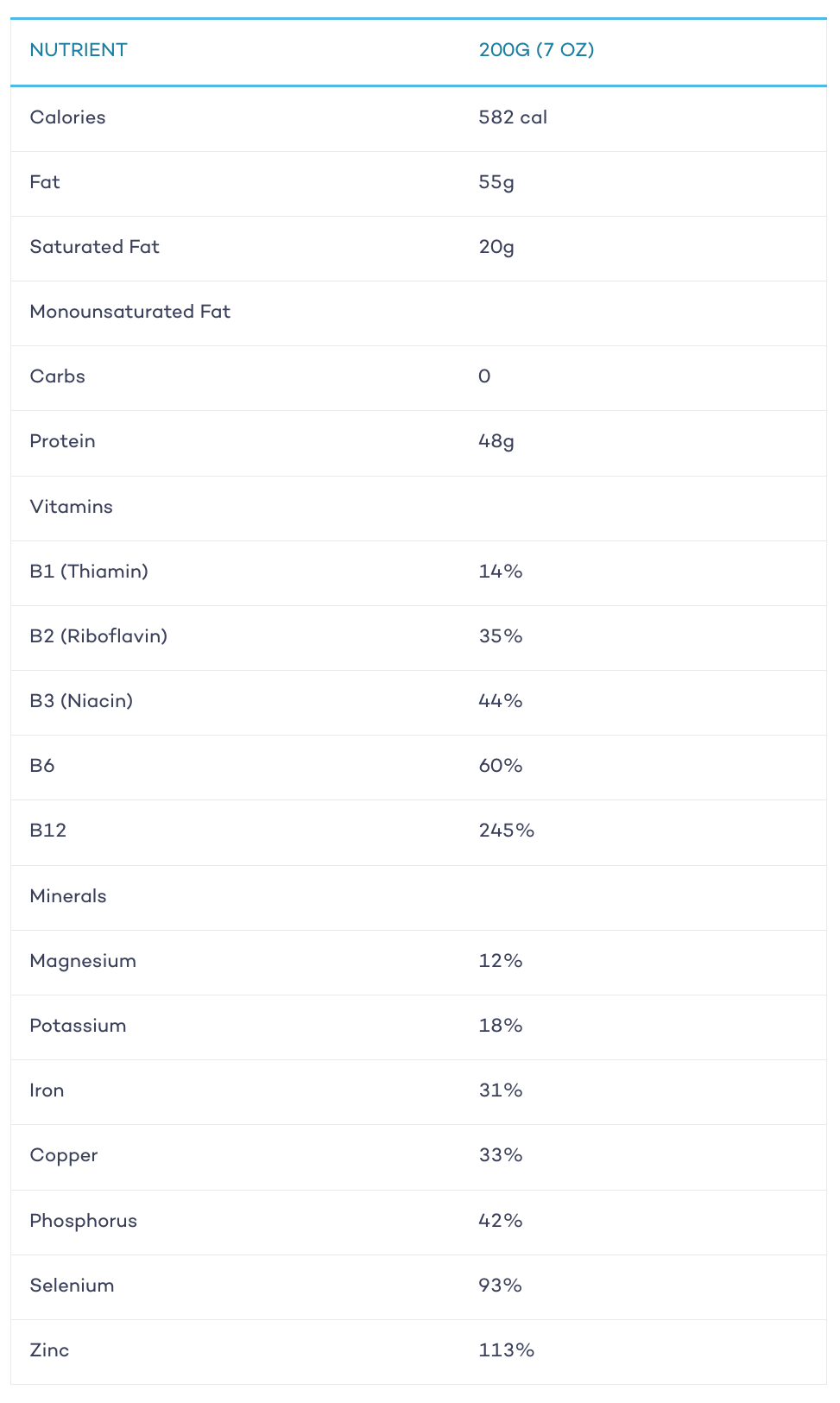
New York Strip
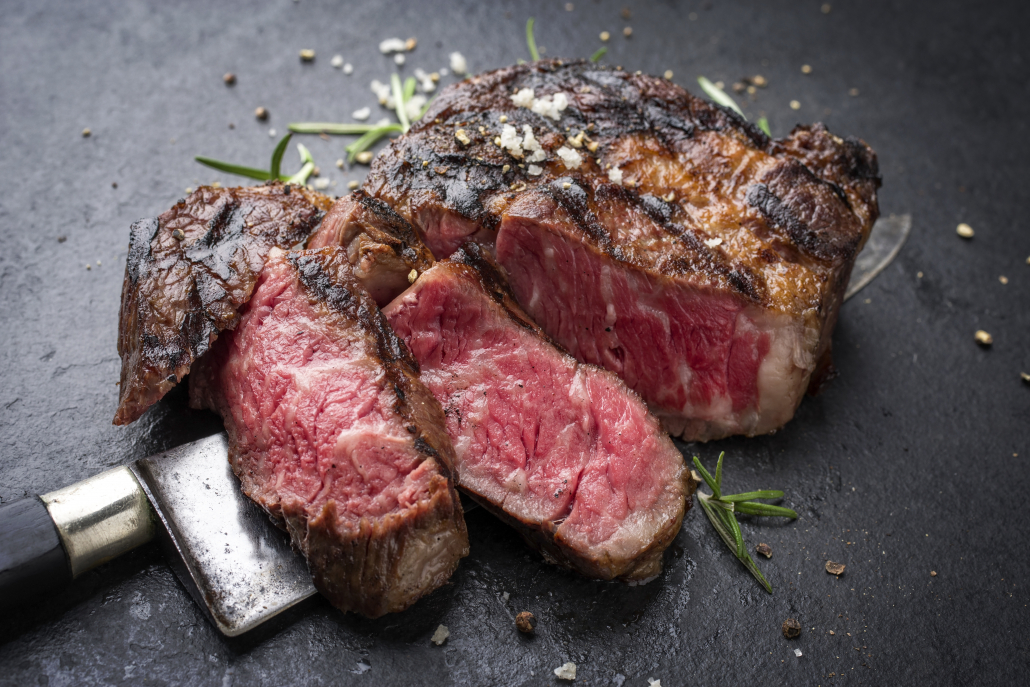
This steakhouse staple features succulent marbling making it a favorite on the grill and in the pan.
When it comes to health, New York strip provides a similar nutrition profile to ribeye– it’s especially abundant in B vitamins, zinc, and selenium.
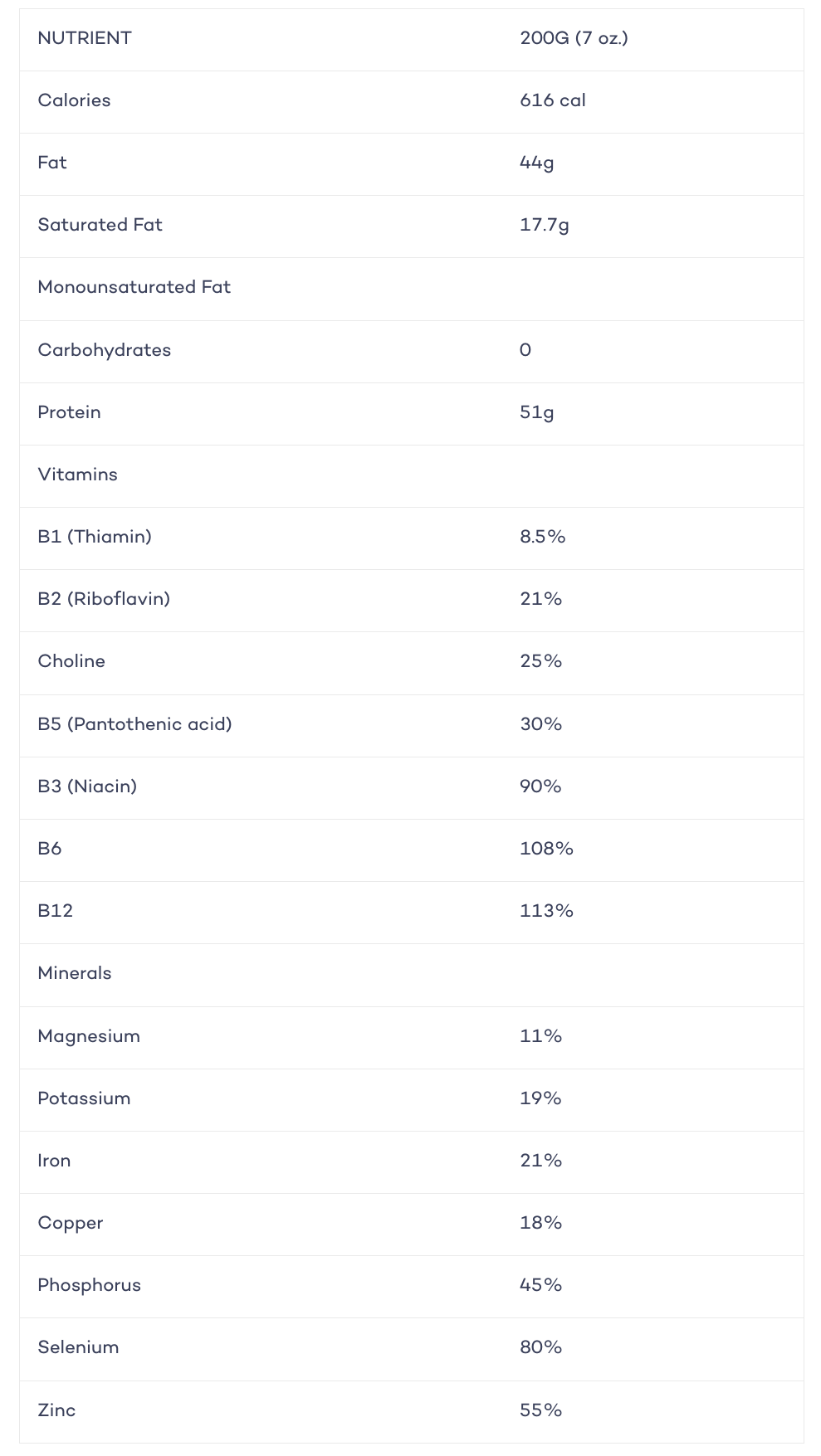

A staple in many Asian cuisines, beef short ribs can melt off the bone.
Shortribs nourish you with 250% RDV of vitamin B12 and 102% of zinc.
These health-promoting nutrients are cticial to your bodies ability to accomplish more than 300 essential functions from immune response, to DNA synthesis, and metabolism of food into energy [72] [73] [74].
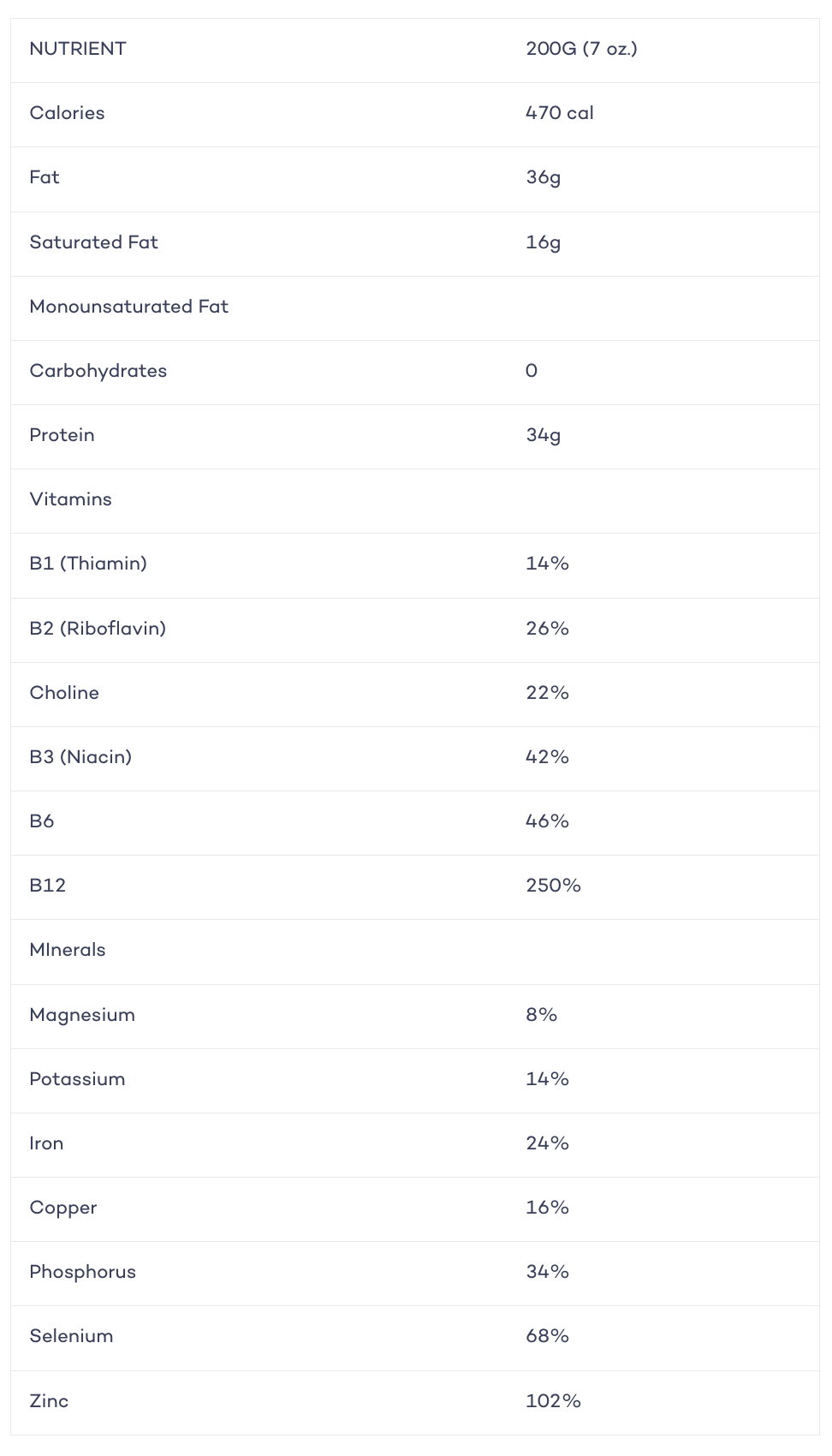
Is steak healthy? It’s a question that has only been asked for about the last 70 years. And during this time it’s been one of the most controversial topics in nutrition.
Before that, the answer was a resounding yes–evidenced by the glowing health of traditional cultures that made meat a centerpiece of their disease-free lifestyles.
Modern science is finally catching up with ancient wisdom–exonerating steak from nutritional misinformation. Numerous recent high-quality studies confirm that eating fresh steak is not causally related nor significantly associated with any disease outcomes.
In fact, eating steak provides your body with a near-perfect balance of essential macro and micronutrients, many of which are found only in steak and other meats.
The health benefits of eating steak may include:
So, Is steak healthy? All signs point to YES!

We’re a global community of seekers, healers, and doers committed to reclaiming health on our own terms. When you join the Kiltz Mighty Tribe (KMT), you’ll gain access to education, support, and collective wisdom.

